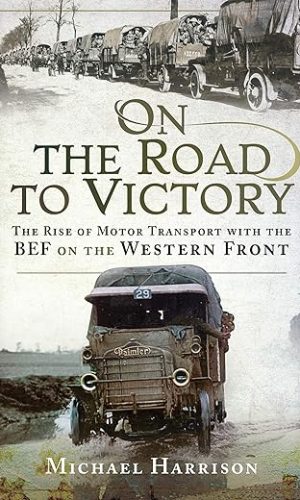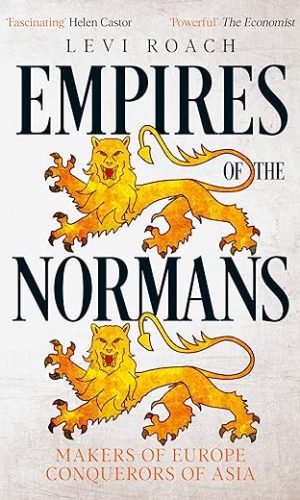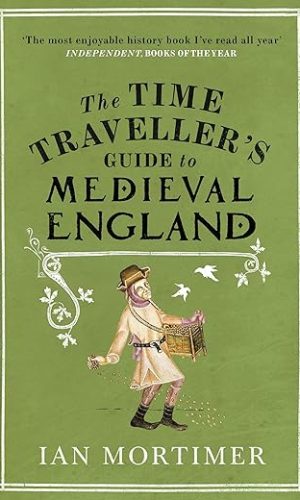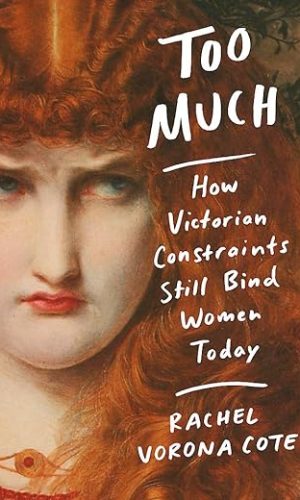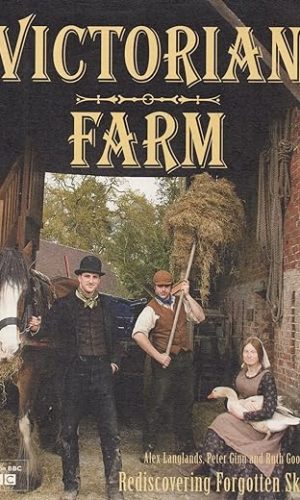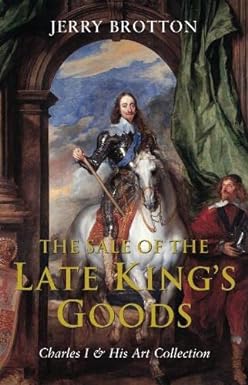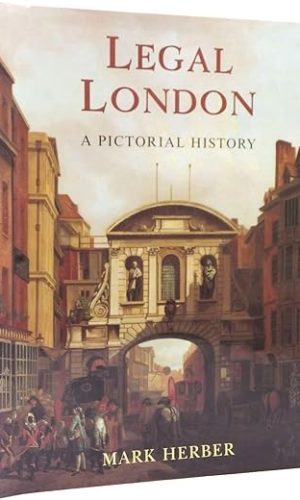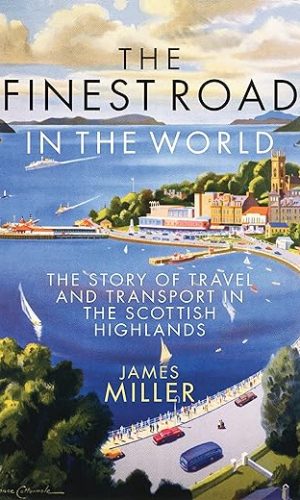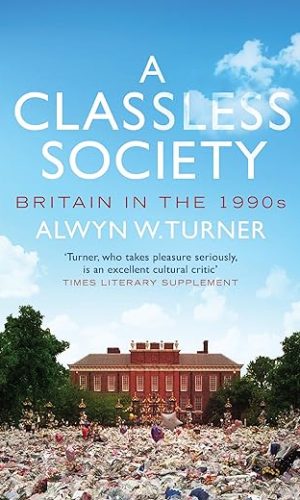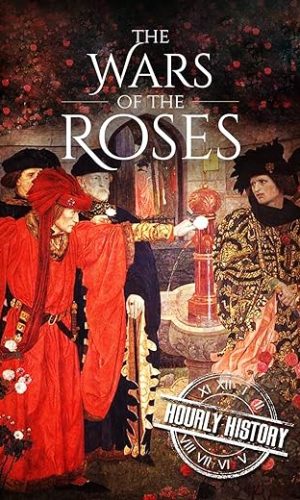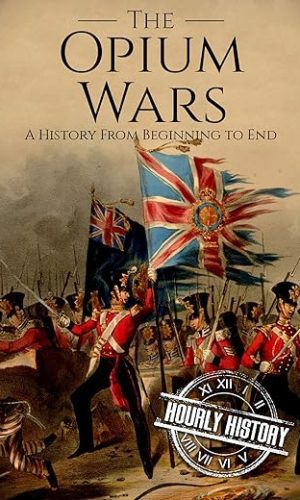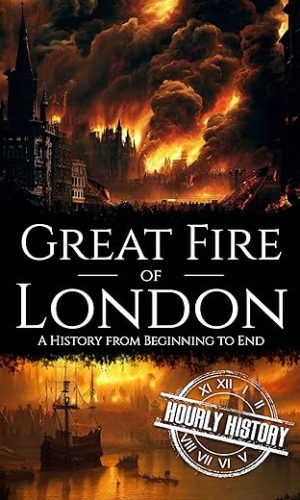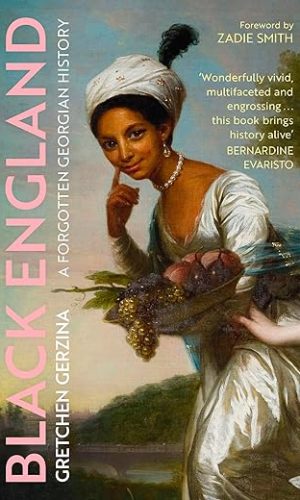Great Britain
-
On the Road to Victory: The Rise of Motor Transport with the BEF on the Western Front
The story of a revolution in moving troops and supplies: “A rare gem that will fill a gap in your World War I library. Highly recommended.” —Indy Squadron DispatchThe Great War produced many innovations, in particular the spectacular development by the British and French armies of motor transport.
The age-old problem of moving soldiers and their supplies was no different in 1914 than it had been some 2,400 years ago, when the great Chinese military thinker Sun Tzu informed his readers that the further an army marched into enemy territory, the more the cost of transport increased, even to the point that more supplies were consumed by the transportation of men and their horses than was delivered to the troops.
Using many previously unpublished illustrations, including artists’ impressions, this book tells the story of the men and women who made motor transport work for the victorious British Army on the Western Front, so that in 1918, the humble lorry did indeed help propel the British Army forward on the road to victory.
Read more
£4.70 -
Empires of the Normans: Makers of Europe, Conquerors of Asia
‘Powerful’ The Economist
‘Fascinating, panoramic . . . Roach brings an expert eye and page-turning energy’ Helen Castor, bestselling author of She Wolves
‘Narrated with pace, clarity, authority and style, Roach’s book is a bracing tour of the world that the Normans made their own’ Thomas Williams, bestselling author of Viking Britain
‘A fresh retelling . . . written with enthusiasm and brio’ Marc Morris, bestselling author of The Anglo-Saxons
How did descendants of Viking marauders come to dominate Europe, the Mediterranean and the Middle East?
It is a tale of ambitious adventures and fierce freebooters, of fortunes made and fortunes lost. The Normans made their influence felt across all of western Europe and the Mediterranean, from the British Isles to North Africa, and Lisbon to the Holy Land. In Empires of the Normans we discover how they combined military might and political savvy with deeply held religious beliefs and a profound sense of their own destiny. For a century and a half, they remade Europe in their own image, and yet their heritage was quickly forgotten – until now.
Read more
£4.70 -
A Short History of England: Simon Jenkins
From the invaders of the dark ages to the aftermath of the coalition, one of Britain’s most respected journalists, Simon Jenkins, weaves together a strong narrative with all the most important and interesting dates in a book that characteristically is as stylish as it is authoritative.
A Short History of England sheds light on all the key individuals and events, bringing them together in an enlightening and engaging account of the country’s birth, rise to global prominence and then partial eclipse.There have been long synoptic histories of England but until now there has been no standard short work covering all significant events, themes and individuals.
Now updated to take in the rapid progress of recent events and beautifully illustrated, this magisterial history will be the standard work for years to come.
Read more
£4.70£9.50A Short History of England: Simon Jenkins
£4.70£9.50 -
The Time Traveller’s Guide to Medieval England: A Handbook for Visitors to the Fourteenth Century (Ian Mortimer’s Time Traveller’s Guides)
Discover an original, entertaining and illuminating guide to a completely different world: England in the Middle Ages.
Imagine you could travel back to the fourteenth century. What would you see, and hear, and smell? Where would you stay? What are you going to eat? And how are you going to test to see if you are going down with the plague?
In The Time Traveller’s Guide Ian Mortimer’s radical new approach turns our entire understanding of history upside down. History is not just something to be studied; it is also something to be lived, whether that’s the life of a peasant or a lord. The result is perhaps the most astonishing history book you are ever likely to read; as revolutionary as it is informative, as entertaining as it is startling.
‘Ian Mortimer is the most remarkable medieval historian of our time’ The Times
‘After The Canterbury Tales this has to be the most entertaining book ever written about the middle ages’ Guardian
Read more
£4.70 -
The Twelve Dels of Christmas: My Festive Tales from Life and Only Fools
“What a brilliant Christmas gift” Chris Moyles
“Like sitting down by the fire with [Sir David] and hearing your stories … Full of surprises” Lorraine Kelly
Think of this memoir as a Christmas special in book form, from someone who has been involved in a few of those and understands a bit about the concept. But a Christmas special very much like Only Fools and Horses, in the sense that the stories will be always heading outwards, ranging far and wide and well beyond the traditional festive gags involving giblets left in turkeys.
As I sift through various festive-related episodes in my career, loosening the ribbons, parting the wrapping paper, I’ll be doing my best to reach any relevant conclusions about life, work and the meaning of it all that I can usefully pass on to you – baubles of wisdom if you like. Or certainly baubles. You’ll learn why I have the perfect face to play Scrooge. And if you’re lucky I’ll also share what it’s like to fly in a helicopter with my old mucker Tom Cruise. Merry Christmas, you plonkers.
Read more
£4.30£8.50 -
Too Much: How Victorian Constraints Still Bind Women Today
Lacing cultural criticism, Victorian literature, and storytelling together, Too Much explores how culture corsets women’s bodies, souls, and sexualities – and how we might finally undo the strings.
Written in the tradition of Shrill, Dead Girls, Sex Object and other frank books about the female gaze, Too Much encourages women to reconsider the beauty of their excesses – emotional, physical, and spiritual.
Rachel Vorona Cote braids cultural criticism, theory, and storytelling together in her exploration of how culture grinds away our bodies, souls, and sexualities, forcing us into smaller lives than we desire. An erstwhile Victorian scholar, she sees many parallels between that era’s fixation on women’s ‘hysterical’ behavior and our modern policing of the same; in the space of her writing, you’re as likely to encounter Jane Eyre and Lizzie Bennet as you are Britney Spears and Lana Del Rey. This book will tell the story of how women, from then and now, have learned to draw power from their reservoirs of feeling, all that makes us ‘too much’.
Read more
£3.70£19.00 -
Victorian Farm
No electricity, no gas, no flushing toilet … and no tractor! Could you survive a year on a Victorian farm? In this fascinating time-travelling experiment Lion Television, with the BBC, follow a team of historians who will spend a year recreating farm life in 1885. Accompanying the series, this book follows the team as they try to run a farm using only materials and resources that would have been available to them in the Victorian era.This was a crucial period in the history of Britain – rapid industrialization had radically changed life in the cites but rural communities used a mixture of centuries-old and pioneering modern practices. Packed with informative text and photographs from the farm year, this book reveals exactly what the Victorians, ate, wore, how they managed their animals, farmed the land and organised their lives. In-depth features describe revolutionary advances in more detail, including new inventions, new breeding methods and advances in agricultural science. Practical projects allow you to join the historians in rediscovering Victorian crafts, cookery and homecare.
Providing a real insight into life on a Victorian farm, this series is also a fascinating reminder of how history comes full circle. The organic diet of 1885, use of natural products for cleaning and healthcare and interests in crafts and gardening are of increasing relevance today as we look for a more responsible way of living over 120 years later.
Read more
£3.60Victorian Farm
£3.60 -
Britain’s Most Eccentric Sports
Britain is a nation of good sports – literally, it turns out, given our country’s wonderful array of eccentric and bizarrely inventive pastimes. Yes, we know New Zealand are good at rugby, Brazil at football, while Australia and South Africa were countries specifically created for people who take sport far too seriously, but have those sporty nations ever produced a World Champion Pie Eater (OK, Shane Warne notwithstanding)? Has Brazil provided a F1 Pram Racing world champ? Has an Aussie won the World Nettle Eating Championship? A New Zealander tossed his way to Haggis Hurling domination? I can’t hear you Johnny Foreigner, and I’m choosing to interpret your silence as a ‘no’. Because the truth is, ladies and gentlemen of this great, mighty and resilient sporting land we call both Britain and home, we have provided year after year, true world champions in cheese rolling, competitive ploughing, medieval football re-enactment and pram racing. We may not have produced a Wimbledon Champion since the… er… the Wars of the Roses, but put down your Jules Rimet trophy Brazil, hand back your Rugby World Cup South Africa, and pick up your flonking stick – it’s time to learn about the sports that really matter.
Read more
£3.40 -
The Sale of the Late King’s Goods: Charles I and his Art Collection
`So wonderful and glorious a collection, that the like will never again be met with.’ This is how one awed and wistful observer described King Charles’ artworks. As an acquirer of paintings by Europe’s great masters and patron of Rubens and Van Dyck, Charles’s extravagance in amassing his collection only exacerbated the parliamentary disapproval that led to civil war and the King’s own execution. After his death, one of the Commonwealth’s first decrees was to sell off his treasures to raise money for the new regime. After the Restoration, one of Charles II’s first resolutions was to get the collection back.
Jerry Brotton tells the remarkable story of the king and his pictures: their acquisition, dispersal and eventual recovery. He reveals a world in which diplomats doubled as art dealers, and in which the king’s plumber could be temporary owner of Bassano’s The Flood. This is a vivid portrait of a tragic king and his decadent court, set against the backdrop of political conflict and civil war, which also offers a new and compelling perspective on art and the evolution of collecting in England.
Read more
£3.20 -
Legal London: A Pictorial History
London has been home to more lawyers, for more centuries, than any other city on earth. Paris ran it neck-and-neck until the 18th century, after which London romped away as the national and then imperial capital of a legal system with centralized Royal Courts of Justice, Inns of Court, Courts of Appeal, debtors prisons, the Old Bailey, the Archbishop’s Court at St Mary le Bow, the Bridewell, the notorious Fleet Prison, and the Metropolitan Police. No other city so celebrates, in surviving buildings and institutions, the work of judges, lawyers, litigants, criminals, and the police! This new book does justice to them all. Covering both civil and criminal aspects of the law, the author’s narrative account is enormously expanded by 200 photographs and engravings, each fully captioned; plus maps to show the location of the courts, Inns, prisons, and other places of punishment throughout the metropolis. This fascinating study of the law at work in days gone by is both entertaining and informative. Though of particular value to everyone interested in London history, it will appeal to members of the legal and law enforcement professions everywhere that the “English” system and tradition has left its mark.Read more
£3.20 -
The Finest Road in the World: The Story of Travel and Transport in the Scottish Highlands
Trains and stagecoaches stuck in the snow, wild storms driving sailing ships off course, traffic pile-ups on so-called ‘killer’ highways – stories abound about the horrors of travel in the Highlands and Islands, and have done for as far as the records go back.
James Miller tells the dramatic and sometimes surprisingly humorous story of travel and transport in the Highlands. Some of the figures in the story are familiar – General George Wade, Thomas Telford and Joseph Mitchell among them – but there are a host of others too, including the intrepid Lady Sarah Murray, who offered sound advice for travellers (‘Provide yourself with a strong roomy carriage, and have the springs well corded’).
This thought-provoking book will appeal to all who like stories of travel and transport, and are interested in how changing modes of transport have affected the ways of life in the Highlands and remain crucial to the modern life and the future of the region.
Read more
£2.90 -
The Long War for Britannia 367–664: Arthur and the History of Post-Roman Britain
This history of early medieval Britain sheds light on the real King Arthur and settles longstanding historical misconceptions about the period.
The Long War for Britannia examines some two centuries of ‘lost’ British history, while providing decisive proof that the early records of the time are far more reliable than many scholars believe. Historian Edwin Pace also demonstrates that King Arthur and Uther Pendragon are the very opposite of medieval fantasy—even if different British regions had very different memories of these post-Roman British rulers.
Some remembered Arthur as the ‘Proud Tyrant’, a monarch who plunged the island into civil war. Others recalled him as the British general who saved Britain when all seemed lost. The deeds of Uther Pendragon replicate the victories of the dread Mercian king Penda. Pace demonstrates how these authentic—yet radically different—narratives have distorted the historical record in way that persist today.
Read more
£2.80 -
Private Life in Britain’s Stately Homes: Masters and Servants in the Golden Age (Brief Histories)
The Victorian and Edwardian eras in the run-up to 1914 marked the golden age of the English country house, when opulence and formality attained a level that would never be matched again. The ease of these perfect settings for flirtation and relaxation was maintained by a large and well-trained staff of servants. Although those ‘in service’ worked very long hours and had little personal freedom, many were proud of their positions and grateful for the relative security these gave. Indeed, the strictly hierarchical world below stairs could be more snobbish than that of a house’s owners. Michael Paterson skilfully and entertainingly explores the myths and realities of this vanished world, both upstairs and down.Read more
£2.80 -
A Classless Society: Britain in the 1990s
“Superb” NICK COHEN, author of What’s Left?
“Tremendously entertaining” DOMINIC SANDBROOK, Sunday Times
“Like his previous histories of the Seventies and Eighties, A Classless Society is an extraordinarily comprehensive work. Turner writes brilliantly, creating a compelling narrative of the decade, weaving contrasting elements together with a natural storyteller’s aplomb… engaging and unique” IRVINE WELSH, Daily Telegraph
“Ravenously inquisitive, darkly comical and coolly undeceived… Turner is a master of the telling detail” CRAIG BROWN, Mail on Sunday
When Margaret Thatcher was ousted from Downing Street in November 1990 after eleven years of bitter social and economic conflict, many hoped that the decade to come would be more ‘caring’; others hoped that the more radical policies of her revolution might even be overturned. Across politics and culture there was an apparent yearning for something the Iron Lady had famously dismissed: society.
The ‘New Britain’ to emerge would be a contradiction: economically unequal but culturally classless. Whilst Westminster agonised over sleaze and the ERM, the country outside became the playground of the Ladette. It was also a period that would see old moral certainties swept aside, and once venerable institutions descend into farce – followed, in the case of the Royal Family, by tragedy.
Opening with a war in the Gulf and ending with the attacks of 11 September 2001, A Classless Society goes in search of the decade when modern Britain came of age. What it finds is a nation anxiously grappling with new technologies, tentatively embracing new lifestyles, and, above all, forging a new sense of what it means to be British.
“Deserves to become a classic” EDWINA CURRIE
“Rich and encyclopaedic” ROGER LEWIS, Daily Mail
“Excellent” D.J. TAYLOR, Independent
Read more
£2.20 -
Wars of the Roses: A History From Beginning to End (Medieval History)
Wars of the Roses
* * *Download for FREE on Kindle Unlimited + Free BONUS Inside!* * *
Read On Your Computer, MAC, Smartphone, Kindle Reader, iPad, or Tablet.
The Wars of the Roses were a series of civil wars in England fought between the House of Lancaster and the House of York between 1455 and 1485. Over a thirty-year period, England had five rulers, three of whom were killed or executed. Power changed hands on even more occasions as an ineffective king, Henry VI, was subject to mental breakdowns and protectors of the realm were regularly appointed to rule during these episodes, thereby disaffecting Henry’s ambitious queen, Margaret of Anjou. Though the battles fought were limited in scope, one of these, the Battle of Towton, is considered the bloodiest battle ever fought on English soil. The nearby river was described as running red with the blood of some 38,000 soldiers who lost their lives that day.
Inside you will read about…
✓ Prelude to War: A House Divided
✓ A Mad Monarch and His Quarrelsome Relatives
✓ The Ultimate Family Feud
✓ The Final Battle
✓ The Tudor Dynasty
And much more!By the end of the Wars, a new dynasty—the Tudor Dynasty—was born, the powers of the nobility were significantly diminished, and the system of feudalism was all but eradicated. The monarchy was strengthened, and the royal line of succession was secured for the Tudor line. As family feuds go, the Wars of the Roses were historically significant in changing the trajectory of power in England. This book tells the compelling story of this tumultuous period in English history in succinct, yet informative detail that is both educational and entertaining.
Read more
£1.90 -
The Opium Wars: A History From Beginning to End (History of China)
Discover the remarkable history of the Opium Wars…
Free BONUS Inside!
Violent confrontation between armed groups over the supply of illegal narcotics is something we commonly associate with criminal gangs in modern cities, but in the mid-nineteenth century Great Britain went to war with Imperial China in order to continue to supply Chinese addicts with opium. The two wars which followed have become known as the Opium Wars, and they led to the utter defeat of China, the establishment of a British colony in Hong Kong, and the continuation of a narcotics trade that was worth millions of pounds each year to the British.
The Opium Wars exposed the weaknesses of the Chinese Qing dynasty in terms of its military abilities and internal corruption. They also exposed divisions in Victorian Britain where people were beginning to question the morality of going to war to support an illegal narcotics trade which caused misery and death for millions of Chinese. In the end, the British were able to overcome their reservations and prosecuted these two wars with great success. British casualties were small and the gains enormous—the British opium trade to China would continue for more than fifty years after the end of the Second Opium War.
For the Chinese Qing dynasty, the Opium Wars marked the beginning of the end. Imperial China had endured for two thousand years, but within fifty years of the humiliations of the Opium Wars, a revolution overthrew the imperial court and turned China into a republic. Although they are little remembered today, the Opium Wars changed the face not just of China but also of the whole of Asia. This is the story of those wars.
Discover a plethora of topics such as
- The Joy Plant
- Outbreak of the First Opium War
- British Superiority and the Devil Ship
- The Treaty of Nanking: First of the Unequal Treaties
- The Inevitable Second Opium War
- The Fall of Beijing
- And much more!
So if you want a concise and informative book on the Opium Wars, simply scroll up and click the “Buy now” button for instant access!
Read more
£1.90 -
A Victorian Workhouse – The Lives Of The Paupers: Mildenhall Suffolk (History of Mildenhall, Suffolk)
“It is obvious that Danny Pearson, author, has thoroughly researched the history of Mildenhall Workhouse, and has succeeded in writing a book that shines a light on part of Suffolk’s hidden past.
But, instead of being a tedious diary of chronological events, Danny has managed to bring history alive by looking into the lives of certain inmates, and how they did, or did not survive. Sometimes the writing is gory . . . But It’s real! This book is a highly readable account and an intriguing but sometimes gruesome chronicle of life during Victorian times in Suffolk.”Charlie Haylock, Voice Dialect Coach on “The Dig
“Pearson’s account of the lives of Mildenhall Workhouse residents has a well-structured narrative and conversational tone. Not just a chronicle of people and events, Pearson also injects a modern perspective and sense of humour into these stories. As a result, A Victorian Workhouse indirectly asks readers to consider how we can care for people today by laying bare the humanity of those who suffered through poverty in the Victoria era. This is an excellent and well-researched book for both casual readers and lovers of Victorian history.”
Devon Driver
100 Years on since the demolition of the grand Victorian mansion that was the Mildenhall Union Workhouse, this book tells the story of the “Paupers” unfortunate enough to have found themselves confined within it’s walls. The book takes you on a time travelling experience to meet former residents of this market town in rural Suffolk. Discovering grave robbery, disease, suicide, violence and misunderstood mental illness along the way. Discover their story.
Many individuals heartbreakingly fell into the poverty trap, created by the new poor law of 1834, desperate individuals who would never live outside the workhouse again. Any “Paupers” unfortunate enough to die within the workhouse, could find themselves sold to Cambridge University, their bodies used to train Medical students. Even in death the Paupers were owned by the workhouse. Read their story.
However there were inmates who walked proudly away from the institution and these stories can also be found in this book too. Such as the young Mildenhall lad, who had just a few years earlier walked the streets with his mum and sisters, dressed in rags without any food, toes poking out of his worn down shoes. This family tramped the streets looking for shelter on a freezing cold November evening. The same young man a decade later created a new life for himself, literally chasing away the Workhouse shadows in Sunny California, a real life Suffolk cowboy! Read his story.
Who ran the workhouse? Who were the Master and Matron of the Mildenhall Union? Who and what were the Board of Guardians? As well as the stories of the poor, this book reveals the lives of those tasked with caring for the poor. You will discover that the Master has some skeletons in his closet! Discover his story.
If you were to take a short stroll through Mildenhall you would soon discover many of the street names and buildings named after former wealthy residents. Names such as Hanmer, Bunbury, North, Aldrich, famous names not just in Mildenhall but throughout Britain. The poor walked the very same streets as theses famous families, leaving behind little evidence that they were ever here. These lives now carefully pieced back together through years of research using historical records and newspaper archives.
The poor were here too, read their story
Read more
£1.90 -
Great Fire of London: A History from Beginning to End
Discover the devastating history of the Great Fire of London…
Free BONUS Inside!In the summer of 1666, London was one of the largest cities in Europe, with close to half a million people living in its narrow, congested streets. Many of these people lived in houses packed closely together, lacking even basic facilities such as clean water and sewage disposal. The previous year, these unsanitary conditions had contributed to the worst outbreak of plague since the Black Death in 1348. Around 15% of the city’s population died as the deadly disease spread unchecked for almost twelve months. Finally, by the summer of 1666, the threat of plague seemed to be receding, and London slowly began to return to normal. But then, the city was threatened by another deadly hazard: fire.
London was a tinderbox waiting to ignite. Many of the city’s wooden buildings were sealed with flammable pitch, their upper stories jutting out and nearly meeting across the streets. An unusually hot and dry summer had drained the city’s water supplies, and without an organized firefighting force, its citizens were left to fend for themselves. The stage was set for catastrophe, and in the early hours of Sunday, September 2, 1666, the spark was struck. A seemingly inconsequential fire ignited in a baker’s shop on Pudding Lane. Unchecked and underestimated, it would grow to become one of the most devastating disasters London had ever faced.
Discover a plethora of topics such as
- London: A City at Risk
- September 2: Pudding Lane
- September 3: The Fire Spreads
- September 4: A Change of Wind
- September 5 & 6: The Fire Dies Down
- Rebuilding
- And much more!
So if you want a concise and informative book on the Great Fire of London, simply scroll up and click the “Buy now” button for instant access!
Read more
£1.90 -
Black England: A Forgotten Georgian History
‘The classic book on Black people in Georgian London’ DAVID OLUSOGA
‘Deeply researched, lucidly written and utterly fascinating . . . If you ever thought Black British history started with Windrush, read this book’ GREG JENNER
Georgian England had a large and distinctive Black community. There were special churches, Black-only balls, many became famous and respected. But all, whether prosperous citizens or newly freed slaves, lived under the constant threat of kidnap and sale to plantations. Black England tells their stories, bringing their triumphs and tortures to vivid life, revealing a dramatic forgotten chapter of our shared past.
‘Black England taught me more history than I ever learned at school. Gretchen Gerzina tells it as it was, so we know how it is . . . a book that will be relevant for ever’ BENJAMIN ZEPHANIAH
Read more
£0.90

